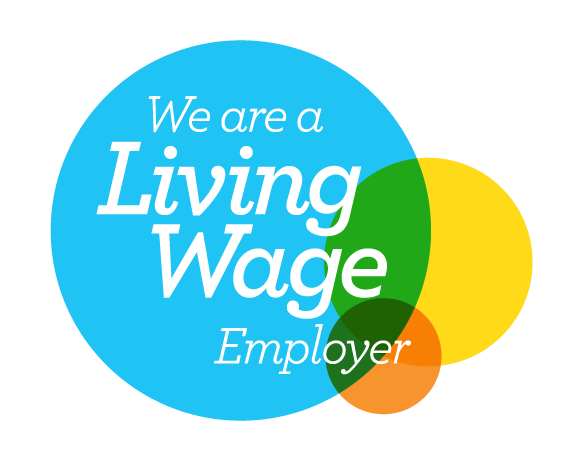UK Energy Market Update and H2 Outlook for Manufacturers
As energy remains a defining cost and operational risk for UK manufacturing, upcoming regulatory reforms in the UK electricity market warrant close attention.

There are currently four headline developments set to impact how mid-to-large manufacturers procure, pay for, and plan energy usage: the Review of Energy Market Arrangements (REMA); Cost Allocation Reform; the next regulated period of network charging; and the UK Hydrogen Strategy.
This update outlines the most material changes to expect from now through to early 2026, with a focus on the commercial and strategic implications for the Manufacturing industry.
REMA: Reforming Electricity Market Arrangements
The Reformed National Pricing Delivery Plan is due within 2025
DESNZ has just published an update to the Review of Electricity Market Arrangements (REMA) work. Launched in response to the UK's growing share of low-carbon generation and challenges in transporting energy from where it is generated to where it is consumed, REMA explores structural market reforms that could reshape wholesale prices.
What’s on the table?
- DESNZ have decided to evolve the current model, opting for a Reformed National Pricing model, rejecting the revolutionary zonal pricing model. This will retain the single national wholesale price.
- There was also a commitment to publish a full analysis later in 2025 of the different national pricing model options; the reform of transmission network charging: Capacity Market reform; and additional proposals designed to make it easier to connect into the electricity network and encourage investment in new generation capacity.
Implications for manufacturers:
Sites with inflexible operations, or those located away from generation centres, could see higher peak price exposure under certain options aimed at improving efficiency. The finer detail of the decision will offer crucial clarity, with implementation now being split between several workstreams and likely stretching well into the latter half of the decade.
Cost Allocation Reform: an uneven burden ahead?
The process is ongoing in 2025 with a call for input anticipated in Summer 2025
Ofgem is reviewing how network costs are spread across electricity users as the country starts a huge programme to upgrade the networks. Today, the system heavily protects domestic consumers and Energy Intensive Industries (EIIs) through exemptions and subsidies.
But emerging thinking suggests that ‘everyone else’—including mid-scale industrials not qualifying as EIIs—could face an increasing cost burden. This includes businesses that:
- Use significant volumes of energy but do not meet EII thresholds.
- Lack the scale or data infrastructure to access bespoke tariffs or exemption schemes.
- Lack the ability to move their consumption to cheaper times of the day.
Implications for manufacturers:
In simple terms: if you’re too big to be domestic but not big enough to be protected, you could be footing more of the bill in 2026 and beyond.
RIIO and Network Charging: What’s Coming?
The current network price control process known as RIIO (Revenue = Incentives + Innovation + Outputs) is approaching its end, meaning its third iteration will be beginning shortly.
Nearer-term changes are worth noting:
- ET3 (Electricity Transmission) and GT3 (Gas Transmission): Decisions are expected in December 2025, with implementation from April 2026.
- Residual Charging Band Review: This takes effect from April 2026, with new charging bands now issued for transmission and distribution charges. This will see some users moved between charging bands as the networks rebalance how costs are assigned across user groups.
Slightly further out, the new period for gas and electricity distribution charges will be set:
- Decision due: December 2027
- Implementation: April 2028
Implications for manufacturers:
For manufacturers, this may shift the cost advantage (or disadvantage) of peak avoidance, on-site generation, or demand-side flexibility strategies.
The UK Hydrogen Strategy
DESNZ is continuing to work on the development of hydrogen infrastructure and production, and is aiming to publish a UK Hydrogen Strategy in Autumn 2025. This is likely to focus on application for hard-to-decarbonise industry, heavy transport and as an energy storage mechanism through electrolysers.
A consultation has recently been published on blending hydrogen into the grid, looking at a “minded to” (preliminary) position of up to 2% by volume injected into the transmission network.
Implications for manufactures:
- Funding for hydrogen production is likely to be recovered via a levy, estimated to increase the average gas price by up to 2% between 2028 and 2037.
- The inclusion of hydrogen in the gas mix may be unsuitable for specific end-user application, requiring investment in de-blending technologies by the consumer.
The ever-changing policy landscape for energy can be tricky to navigate. Optimised partners with manufacturers to help navigate all aspects of energy services, from data management through to energy procurement, as well as cost recovery and qualification as EII. We also help companies identify opportunities for site level energy efficacies, cost efficiencies, carbon savings and alignment with the net zero agenda.

Article by Giles McNaught
Senior Bureau Analyst
Giles is a specialist in UK energy policy and regulation. He has extensive experience translating complex industry changes into actionable insights, helping businesses adapt to regulatory shifts and net zero targets. As a Senior Bureau Analyst, Giles plays a key role in ensuring clients stay ahead of evolving policies, leveraging his expertise in compliance, digitalisation, and stakeholder engagement to drive meaningful change in the energy sector.
BOOK YOUR 30-MINUTE ENERGY MANAGEMENT CONSULTATION
Fill in your details below to arrange a complimentary consultation with one of our experts. They will give you bespoke advice to help your business achieve all its energy needs, reducing cost, consumption and carbon.









